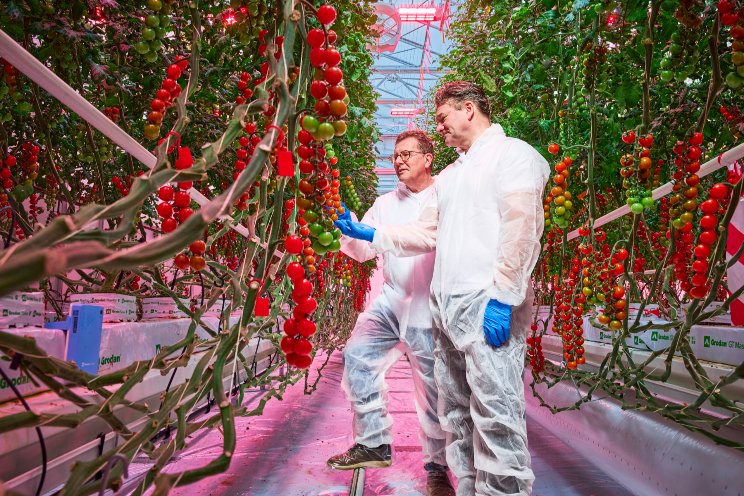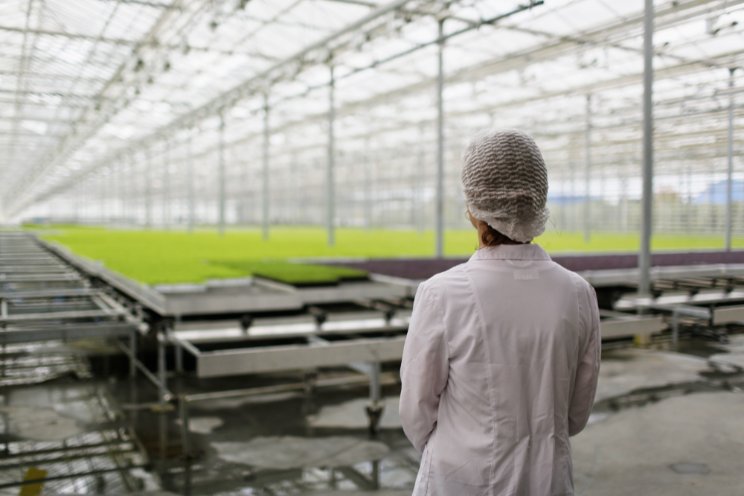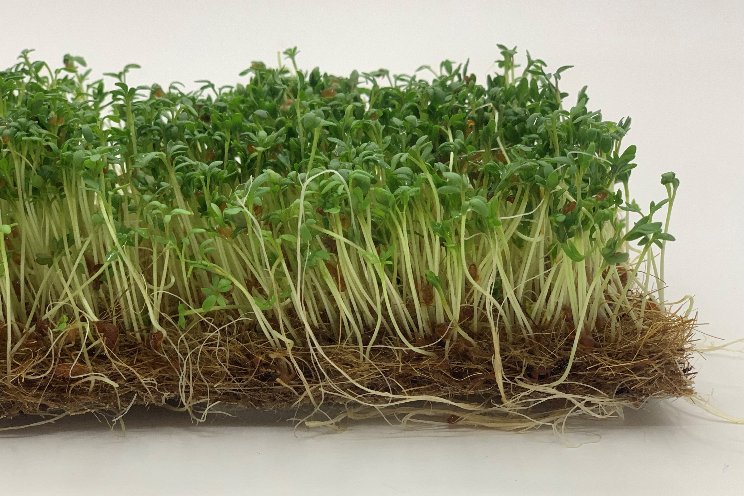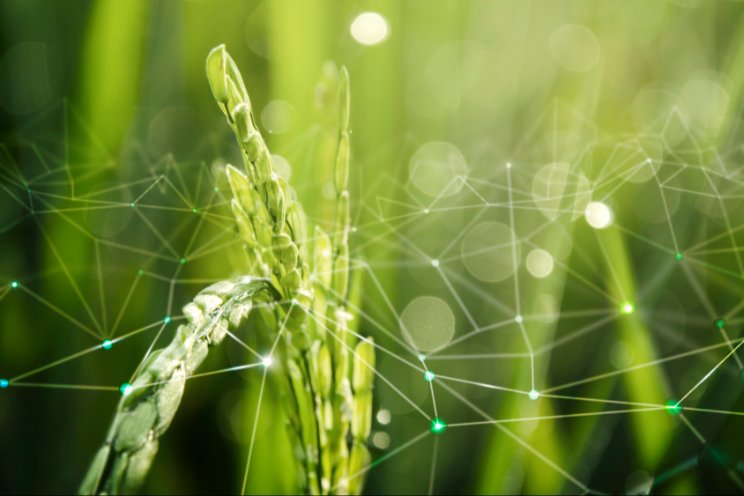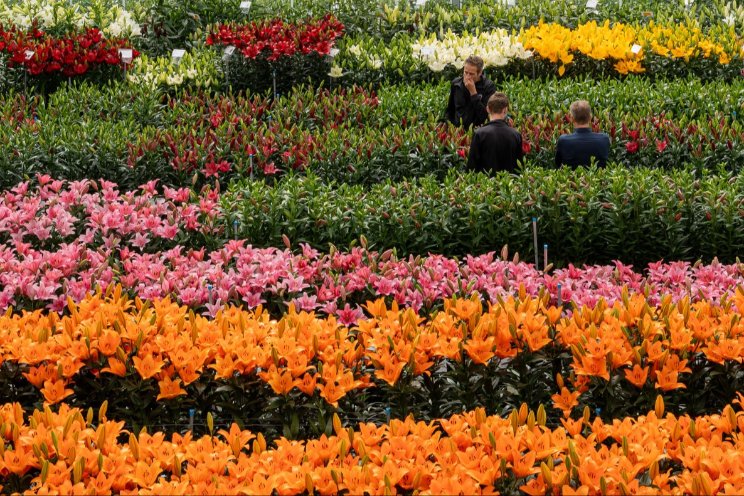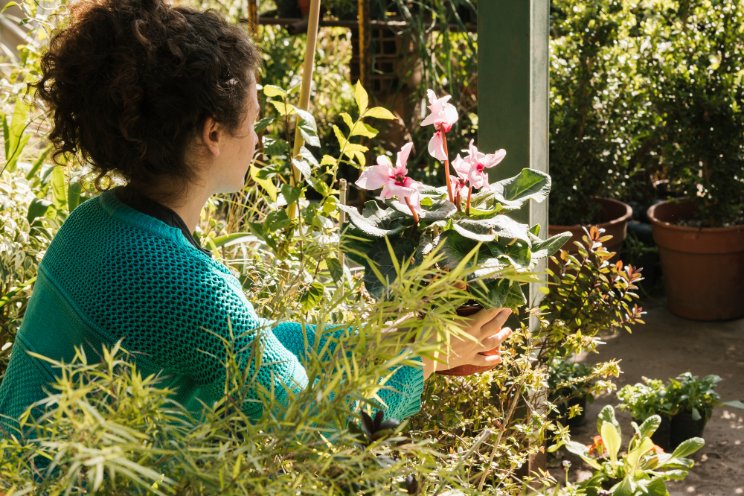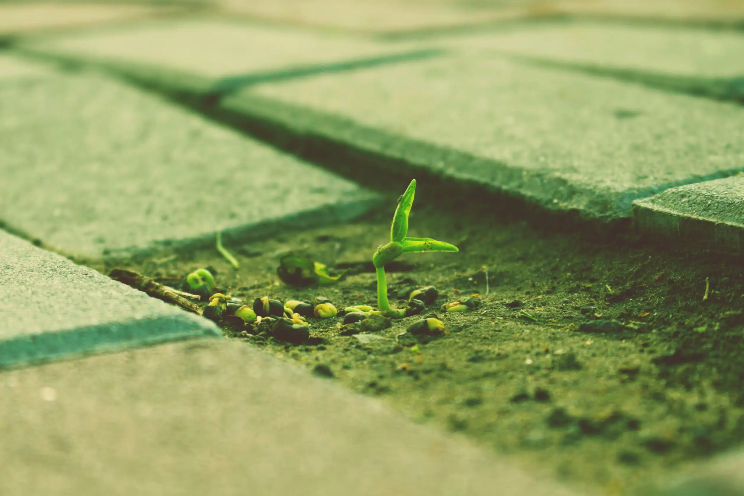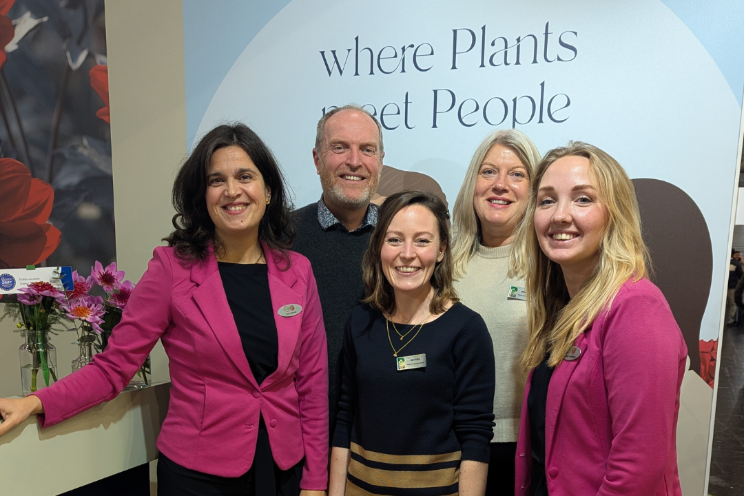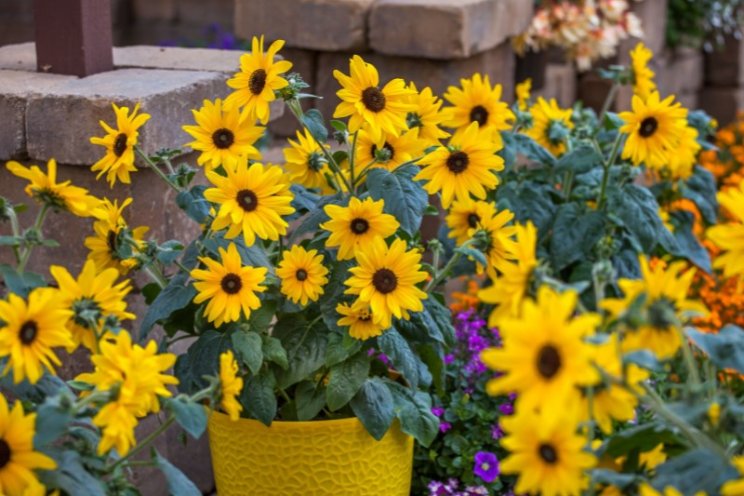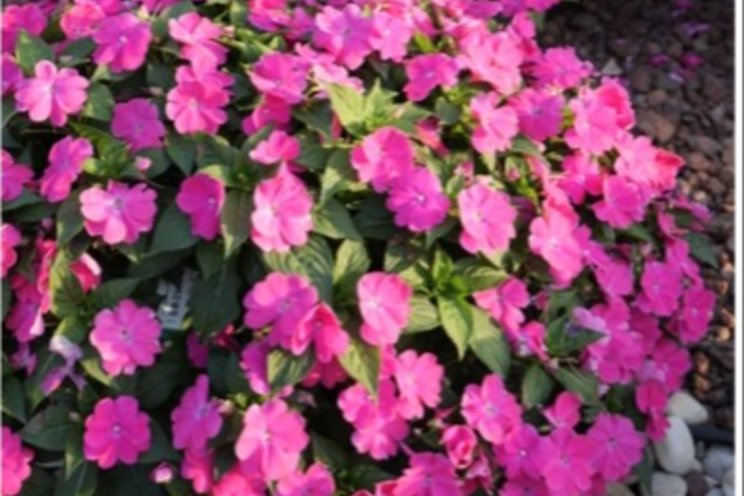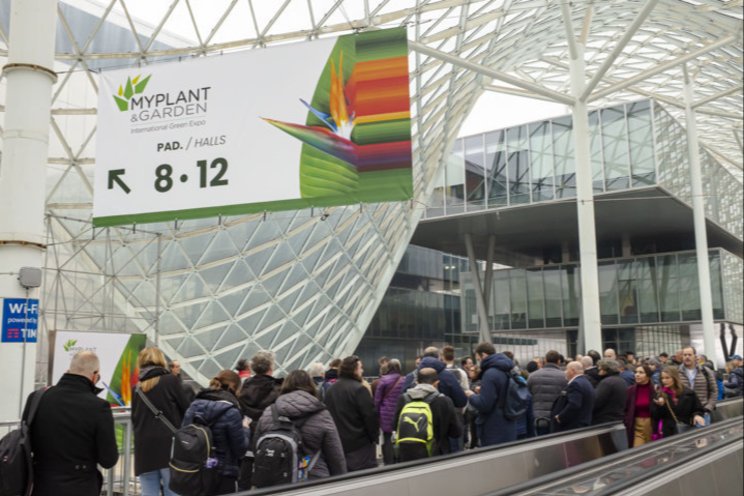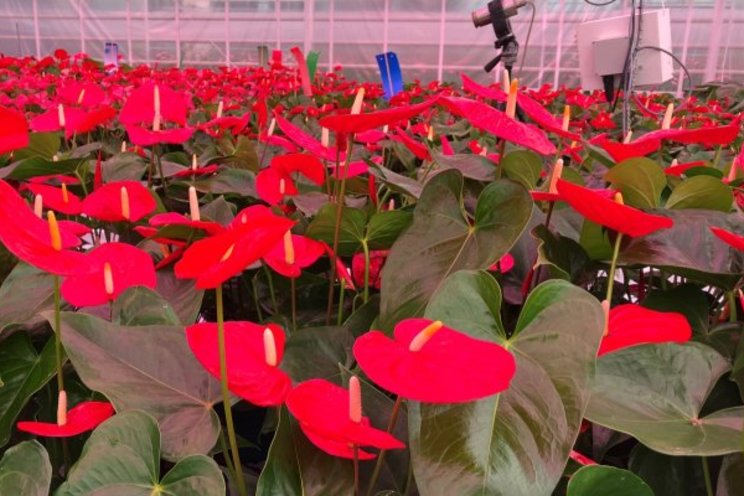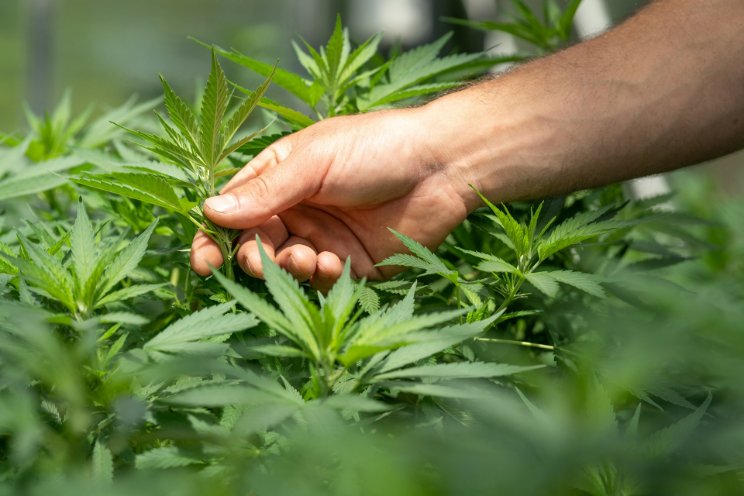Philips join forces with Siemens to innovate vertical farming
Added on 28 November 2023

Digitalization Enhancement: This partnership aims to implement cutting-edge technologies in vertical farming, making the process smarter and more efficient. This focus on digitalization is expected to optimize resources and improve yield quality.
Advancing Automation: The collaboration will integrate automated solutions to streamline farming processes. Automation will ensure precision and consistency in farming practices, leading to more reliable and efficient outcomes.
Commitment to Sustainability: The collaboration is more than a business partnership; it is a commitment to sustainability. By combining Philips Horticulture’s expertise in LED lighting solutions with Siemens’ advanced technological capabilities, the partnership aims to create a more sustainable and environmentally friendly approach to farming.
Revolutionizing Vertical Farming: The joint efforts of these two industry leaders are set to bring the vertical farming landscape to the next level. Their combined expertise and resources promise to innovate and improve the way vertical farming is approached, potentially leading to significant advancements in sustainable agriculture.
The announcement of a Memorandum of Understanding between Philips Horticulture LED Solutions and Siemens marks a pivotal moment in the vertical farming industry. This collaboration signifies a shared vision to revolutionize how we approach agriculture, particularly in urban and controlled environments.
The primary focus of this partnership is on enhancing digitalization in vertical farming. By implementing state-of-the-art technologies, the aim is to create more intelligent, more efficient farming systems. This could involve the integration of IoT (Internet of Things) devices, advanced sensors, and AI-driven analytics to monitor and optimize growing conditions, leading to higher crop yields and reduced resource usage.
Another critical aspect of this partnership is the advancement of automation. Automated systems can manage tasks such as planting, watering, and harvesting with precision and consistency. This streamlines the farming process and minimizes human error, leading to better quality produce and higher efficiency.
Setting new industry standards is also a cornerstone of this collaboration. Philips Horticulture and Siemens are working together to explore the future possibilities of vertical farming, potentially creating benchmarks and best practices that could be adopted worldwide. This collaborative approach aims to push the boundaries of agriculture’s current possibilities.
The commitment to sustainability is at the heart of this partnership. By combining Philips Horticulture’s expertise in LED lighting solutions, crucial for plant growth in vertical farms, with Siemens’ technological prowess, the partnership is set to create more sustainable farming methods. This approach benefits the environment and supports the growing need for food in urban areas.
Philips Horticulture Latest News
Signify Partners with Houweling Americas to Expand Philips Horticulture LED Solutions in Canada (2023/10/26)
Signify has partnered with Houweling Americas to provide Canadian greenhouse growers exclusive access to the Philips LED lighting portfolio of greenhouse lighting solutions. Houweling Americas, a division of the Houweling Group, will exclusively offer the Philips LED lighting portfolio to greenhouse growers across Canada. The partnership aims to strengthen the Philips Horticulture lighting partner network in Canada to drive production and efficiency.
Signify’s Research on Philips GreenPower LED Lighting and June Bearing Strawberries (2023/08/07)
Signify conducted research on the effects of far-red light on June-bearing strawberries under LED lighting. The study found that while far-red light boosted overall growth and promoted stem elongation, it did not enhance production. However, the benefits observed in stem elongation can improve climate control and reduce labor and chemical usage. Signify remains committed to further research and development in the realm of full LED.
Philips GreenPower LED Debuts for US & Canada at The 2022 Global Produce & Floral Show (2023/10/19)
Signify will showcase the Philips GreenPower LED toplighting force (TLF) for the North American market at the 2022 Global Produce & Floral Show in Orlando. This is the first time growers in the U.S. will see the TLF, which offers a maximum light output of 3600 µmol/s and an efficiency of up to 3.7 µmol/J. The TLF is compatible with the Philips GrowWise Control System and enables growers to optimize their lighting strategy for greater growth predictability while improving crop quality, increasing yield, and managing energy costs. The TLF will be on display at the Signify booth at Holland Fresh Group #1771.
Sunterra Greenhouses Partners With Signify (2023/09/25)
Sunterra chose Philips LED lighting for their new greenhouse build in 2021 to produce high-quality fruits year-round while managing energy costs. Philips’ customized lighting designs and investment calculations stood out during the vendor selection process. Sunterra now sells its fresh produce in nine Sunterra Markets across Alberta, providing fresh, quality produce all year round.
Research on Far-Red Light in Tomato Cultivation Yields Mixed Results (2023/08/28)
Signify, in collaboration with Wageningen University & Research and Nunhems, researched the effects of far-red light on tomato cultivation. While some benefits were observed, the results are inconclusive. Far-red light could make it easier to direct energy to the fruits, but the degree of increase varied across tomato varieties. Moreover, energy consumption is higher with far-red light compared to PAR light, and it could negatively affect the quality of the plant. Experts recommend sticking with current light recipes for tomato growers.
Extends Partnership With Wageningen University (2023/07/28)
Signify and Wageningen University & Research are extending their collaboration at the Innovation & Demonstration Center in Bleiswijk (IDC-LED) to research energy-efficient and cost-effective lighting strategies for horticultural crops. The IDC-LED features advanced Philips GreenPower LED installations and control software, making it a versatile research environment. The collaboration has already yielded significant insights into the role of light in horticulture, and both parties believe dynamic lighting will play a crucial role in energy management for greenhouse horticulture companies.
Signify Q2 2023: Sales Decline Amid Continued Market Challenges (2023/07/28)
Signify has released its Q2 2023 financial results, revealing challenges in its indoor professional and horticulture lighting sectors. Despite a 10.5% sales decline, the company remains optimistic about its progression towards sustainability and cost structure optimization. Signify has already started taking measures to adapt to these challenges and focus on growth opportunities.
Dwarf Tomatoes: Changing Indoor Ag with High-Density Cultivation (2023/06/12)
Philips conducted trials on tomato plants to maximize productivity and improve quality. Certhon and HW Seeds introduced Gronos, a system that uses bush tomato varieties that require less maintenance and yield ripe fruits simultaneously. Philips tested the Gronos system for indoor farming, trialing these bush tomato varieties in high-density, multi-layer systems with simultaneous harvest at the end of the growing cycle. This system yielded up to twice as many tomatoes per square meter per year than traditional greenhouse farming. Despite the challenges, the industry has shown increased interest in this new cultivation method.
Far-Red Light Increases Tomato Yield by 16% New Study Shows (2023/05/18)
Research conducted by Signify (Euronext: LIGHT), the global leader in lighting, in conjunction with Wageningen University & Research and Nunhems, has shown that using far-red light can increase tomato yield by nearly 20%, depending on the variety. Furthermore, the study demonstrated that this increase is achieved when far-red light is utilized throughout the entire photoperiod alongside the standard PAR (Photosynthetically Active Radiation) light.
Reports A Drop In Horticulture Sales In Q1 2023 (2023/05/03)
Signify, a global leader in lighting, reported its Q1 2023 results, showing growth in installed connected light points from 114 million to 117 million but facing a nominal sales decline of 6.1% and a comparable sales growth (CSG) of -9.1%, resulting in total sales of EUR 1,678 million. LED-based sales constituted 82% of total sales, down from 84% in Q1 2022, and the adjusted EBITA margin decreased from 10.5% to 8.9%. Net income for the quarter was EUR 28 million, dropping from EUR 87 million in the previous year. However, free cash flow showed a substantial recovery, rising to EUR 51 million, primarily due to improvements in working capital. Despite facing challenges in Q1, the company’s CEO, Eric Rondolat, confirmed guidance for the year, anticipating potential improvements in the second half of 2023 and noting efforts to double the pace of the Paris Agreement. In the horticulture sector, nominal sales declined by 3.0%, affected by an 8.7% drop in comparable sales, and the Adjusted EBITA margin declined by 100 basis points to 8.7%, attributed to factors such as under-absorption of fixed costs and adverse currency effects.
White Light Does Not Contribute To Plant Growth (2023/04/17)
Recent testing with Philips GreenPower LED production modules has shown that white light is unnecessary for grow lights’ LED installations. Compared to red and blue light, white light does not add value to the crop and only increases energy consumption. Trials on basil crops showed that while the input of white resulted in higher energy consumption, it did not yield more fresh weight. The results suggest that a dynamic LED installation is recommended for efficient lighting, allowing the brightness and spectrum to be tailored to the crop’s needs at any given time.
Read more on those trials here.
Data-Driven Grow Lights (2023/02/03)
Signify, the world’s leading supplier of grow lights is revolutionizing the horticulture industry with its data-driven lighting solutions. By integrating artificial intelligence and collecting and analyzing data, Signify is helping greenhouse farmers make informed decisions and optimize their crop production. The company provides decision-support tools, energy management solutions, and post-sales support from its plant specialists, all while maintaining trust and transparency in privacy and security. Signify is creating a new light on growth, offering farmers a more innovative, efficient way to cultivate their crops.
Signify Reports Its Q4 & Full-year Results (2023/01/30)
Signify, the global leader in lighting, has reported robust results for the year ending 2022, highlighting continued growth in the connected lighting market, with connected light points increasing from 96 million to 114 million. Full-year sales reached EUR 7,514 million, including a 9.5% nominal sales increase and a 1.2% CSG. LED-based sales accounted for 83% of total sales, and the company achieved an adjusted EBITA margin of 10.1% and a net income of EUR 532 million. The fourth quarter saw sales of EUR 1,978 million and an adjusted EBITA margin of 10.2%, leading to a proposed dividend increase to EUR 1.50 per share for 2022. Signify’s focus for 2023 includes improving profitability and returning to a level of free cash flow, with forecasts of an adjusted EBITA margin of 10.5-11.5% and free cash flow of 6-8% of sales. These results underscore the company’s commitment to its shareholders and sustainability, as reflected in its progress under the “Brighter Lives, Better World 2025” program and recognition from the CDP’s Climate A List and the DJSI World Index.
Signify Introduces Far-Red Grow Light for Van Wordragen (2023/01/20)
Signify has provided Van Wordragen Flowers BV, a chrysanthemum grower in the Netherlands, with LED installations that include an adjustable far-red light spectrum. According to research by WUR, chrysanthemum stem length can be regulated completely by LEDs by providing subsequent end-of-day lighting with far-red light, which puts an end to the fear amongst growers that the use of full LED might result in too short flower stems in the winter. The move to use LED lighting and adjustable far-red technology is driven by the high energy prices growers face and the desire to better regulate stem length.
Signify Partners with Greenhouse System USA to Offer Philips Horticulture LED Lighting (2023/01/06)
Signify has partnered with Greenhouse System USA, a California-based greenhouse manufacturing and construction firm, to provide Philips horticulture LED lighting as part of their custom greenhouse solutions. Founded in 1984 and collaborating with Dutch firm Ammerlaan Construction, Greenhouse System USA will leverage this partnership to enhance its offerings. It will enable further customization in new greenhouse builds with high-quality, energy-saving LED lighting. The President of Greenhouse System USA, Peter Fryn, sees the partnership as a means to expand the company’s portfolio to benefit customers and the environment. Signify’s U.S. Sales Leader for the Philips horticulture LED team, Henry Olson, emphasized that this partnership aligns with the company’s goal to be the premier LED lighting provider in the horticulture industry and reflects its ongoing efforts to expand its network of certified partners in the US and Canada.
Signify Reveals Study on Blue Lights Effect on Basil Crop (2022/12/07)
Signify conducted experiments to examine the effects of blue light on the shelf life and quality of basil. However, their findings indicated that there was no significant impact of blue LED illumination on the quality and shelf life of the crop. The experiment was conducted on green and purple basil, and the seedlings were cultivated in a controlled climatic environment with adequate CO2 levels. The experiment examined different percentages of blue light applied either as a continuous treatment throughout the growth or as EOP. The results showed that the light recipe for basil production in Philips GreenPower LED grow lights guarantees the highest possible taste and crop quality achievable with LED lighting.
Plans Expansion of Lighting Business in Egypt (2022/12/02)
In an interview with Zawya, Mohamed Saad, President, and CEO of the NEA region for the Dutch lighting giant, Signify, outlined the company’s target markets in Egypt, including vertical farms, poultry, sports, and public infrastructure. Saad emphasized the company’s growth in Egypt, especially in the horticulture sector, where they provided lighting solutions for the country’s first controlled environment farm producing leafy greens. Signify’s newly introduced UV-C lighting systems have been implemented in various places, including supermarkets and gyms, and its poultry lighting solutions are now in use at specific farms. Reflecting on Signify’s achievement of carbon neutrality in 2020 through 100% renewable electricity and its project “Brighter Lives, Better World 2025,” Saad also highlighted Egypt as an emerging powerhouse market where the company plans to expand local production, with locally sourced components expected to rise to 80%.
Signify (AMS: LIGHT) Reports Improvements Despite Market Volatility (2022/10/28)
Signify (AMS: LIGHT) reported its Q3 earnings, showcasing solid growth with sales reaching USD 1.9 billion, reflecting improvements over Q2, despite an increasingly volatile operating environment. The strong performance in the professional business segment offset lower consumer demand and a slowdown in China, allowing the company to improve profitability despite challenges like energy costs and currency fluctuations. Q3 sales in the Digital Solution segment rose to EUR 1,103 million, with 12.0% comparable sales growth and a 39.0% increase in Adjusted EBITA to EUR 124 million. The impact of Fluence and Pierlite’s acquisition by Signify and favorable currency effects also contributed to this growth in the horticulture segment. Given continued uncertainties, especially in the consumer segment and Chinese market, Signify expects a comparable sales growth of 2-3% for 2022 and is targeting the lower end of guidance ranges for Adjusted EBITA margin (11.0-11.4%) and free cash flow (5-7%), as stated by CEO Eric Rondolat.
Signify Secured The Highest Industry Score in the 2022 S&P Global Corporate Sustainability Assessment (2022/09/26)
Signify, the global leader in lighting, has achieved the highest industry score in the 2022 S&P Global Corporate Sustainability Assessment, receiving 88 points out of a possible 100 as of September 23, 2022. The high rating, which includes total scores (100/100) in 64 categories such as Climate Change Strategy, Scope 3 GHG Emissions, Risk Culture, and Product Design, reinforces Signify’s position as a sustainability leader under its “Brighter Lives, Better World 2025” program. This accolade reflects two years of carbon-neutral operations and the company’s aim to double its positive impact on the environment and society. The achievement positions Signify to secure its place in the Dow Jones Sustainability World Index for the sixth consecutive year, underscoring CEO Eric Rondolat’s pride in its commitment to energy-efficient technologies and positive global impact.
Signify Install Proprietary LED In Korean Greenhouse (2022/08/09)
Signify Korea installed a Philips LED grow light solution at Parm Farm Greenhouse in Korea. The solution accelerates plant growth, increases yields, and improves crop quality. This creates an ideal environment for plant growth, increasing the harvest and generating more revenue by providing a stable supply of tomatoes for consumers. The solution saves up to 50% in energy use and crop yield can be predicted by conducting pre-installation simulations. Parm Farm delivers a stable supply of fresh tomatoes year-round.
Signify Reports FQ2 & Updates on Sustainability Program (2022/07/29)
Signify’s second quarter of 2022 witnessed growth in its connected light points, rising from 100 million to 103 million. Financially, the company also exhibited a robust performance, with sales reaching EUR 1,836 million, marking a 14.1% nominal increase. LED-based sales now represent 84% of total sales, up from 82% in Q2 2021. The Adjusted EBITA margin dropped slightly to 9.5%, and net income significantly increased to EUR 248 million. During this period, Signify completed acquisitions of Fluence and Pierlite and divested non-strategic real estate assets. Despite challenges from external factors such as lockdowns in China, the war in Ukraine, and a weaker consumer environment, CEO Eric Rondolat affirmed the company’s strong traction in the professional segment.
Signify Supplies 40% More Light To Grower Looye (2022/06/17)
Looye Kwekers, a tomato grower from the Netherlands, is transitioning to LED lighting in all its greenhouses due to high energy prices. Signify will install a hybrid set-up in the greenhouses, covering a total area of almost 25 hectares and providing a lot of light and significant energy savings. By the end of summer, half of the lights will be replaced with LED, which will raise the light levels in the greenhouses by 30 to 40%. LED lighting is expected to increase production during winter months by the same amount.
Signify Celebrates 15 Years of Leadership in Developing Horticulture LED Grow Lighting (2022/06/13)
Philips Horticulture and Siemens are collaborating to advance digitalization and automation in vertical farming while setting new industry standards and committing to sustainability. The partnership combines Philips Horticulture’s expertise in LED lighting solutions with Siemens’ technological capabilities to optimize resources and improve yield quality. The collaboration aims to revolutionize sustainable agriculture and bring vertical farming to the next level. The partnership will focus on implementing state-of-the-art technologies to create more intelligent, more efficient farming systems and streamline the process through automation.
Signify’s efficient LED with far-red light performs well in strawberry cultivation (2022/05/17)
Philips Horticulture and Siemens have announced a collaboration to enhance digitalization, advance automation, set new industry standards, and commit to sustainability in the vertical farming industry. By combining Philips Horticulture’s expertise in LED lighting solutions with Siemens’ advanced technological capabilities, the partnership aims to create a more sustainable and environmentally friendly approach to farming. The collaboration promises to innovate and improve the way vertical farming is approached, potentially leading to significant advancements in sustainable agriculture.
Source: iGrowNews
More news
